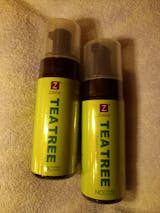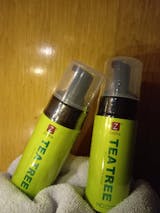Stay Shine-Free: Skincare Ingredients That Control Oil Production
Oily skin can be frustrating. It makes your face look shiny and can cause breakouts. Many people struggle to find ways to keep excess oil at bay. The secret often lies in choosing the right skincare ingredients. With the right options, you can manage oil and get a clearer, matte complexion. This article will explore the best ingredients that help control oil and keep your skin shine-free.
The Science Behind Oil Production and Skincare
Understanding Sebum and Its Role in Skin
Your skin naturally produces sebum—an oily substance that keeps your skin soft and protected. Sebum creates a barrier that locks in moisture. But when sebum levels get too high, your skin looks greasy. Excess oil can clog pores, leading to breakouts and enlarged pores.
Factors Influencing Oil Production
Many things make your skin produce more oil. Genetics play a big role. Hormones, especially during puberty or stress, can boost oil. Diet choices and environmental factors, like pollution or humidity, also affect sebum levels. Hormonal shifts, such as during pregnancy or menopause, can increase oiliness too.
How Skincare Ingredients Can Modulate Sebum Levels
Certain ingredients target oil control by reducing sebum production or blocking its buildup. These actives help balance your skin’s oil levels without stripping natural moisture. Combining gentle cleansing, hydration, and oil regulation is key for skin that stays matte all day.
Top Skincare Ingredients That Control Oil Production
Salicylic Acid: The Go-To Beta Hydroxy Acid (BHA)
Salicylic acid is a favorite among oily skin solutions. It penetrates deep into pores to dissolve oil, dirt, and dead skin cells. Its anti-inflammatory effects calm redness and reduce pimples. Many trusted products, like Paula’s Choice Skin Perfecting 2% BHA, use this ingredient for clearer skin.
Niacinamide: The Versatile Vitamin B3 Derivative
Niacinamide helps regulate oil production naturally. It also strengthens your skin’s barrier, reducing irritation. Plus, it has anti-inflammatory properties that lessen redness and swelling. Incorporate niacinamide into serums or moisturizers for daily oil control and an overall healthier look.
Clay Extracts: Natural Oil Absorbers
Types like kaolin and bentonite clay are highly effective at soaking up excess oil. They work like sponges, drawing out oil while tightening pores. Clay masks are great for oily skin—use them once or twice a week for a shine-reducing boost.
Zinc Pyrithione and Zinc Salts
Zinc compounds act as gentle antimicrobial agents. They fight bacteria that cause acne and excess oil. Zinc also helps normalize sebum production, preventing oiliness and breakouts. Look for products with zinc pyrithione if you want clear, matte skin.
Retinoids: Accelerating Cell Turnover
Retinoids speed up skin cell renewal, helping prevent clogged pores. They also regulate oil secretion, reducing shine over time. Use retinoids cautiously—start slow to avoid irritation, and follow your dermatologist’s advice for the best results.
Other Noteworthy Ingredients
-
Witch Hazel: An natural astringent that tightens pores and reduces shine.
-
Sulfur: Controls oil and kills bacteria that cause breakouts.
-
Tea Tree Oil: A natural antimicrobial that fights pimples and excess oil.
Implementing an Effective Oily Skin Skincare Routine
Cleansing Tips
Pick a gentle cleanser with BHA or salicylic acid. Wash your face twice a day to remove excess oil and dirt. Avoid scrubbing hard, as it can irritate your skin and trigger more oil production.
Toning and Exfoliation
Use toners with witch hazel or glycolic acid to tighten pores and remove residual oil. Regular exfoliation clears dead skin and prevents clogged pores—aim for gentle products 2-3 times a week.
Moisturizing Without Oiling
Yes, oily skin still needs moisturizer. Choose oil-free, non-comedogenic formulas with niacinamide. They hydrate your skin without adding shine.
Targeted Treatments
Apply serums or creams with salicylic acid or retinoids to target specific concerns like breakouts or excess oil. Use these products consistently for best results.
Sun Protection
Use an oil-free, mattifying sunscreen daily. It prevents UV damage and keeps your skin matte and healthy.
Expert Insights and Recommendations
Most dermatologists recommend ingredients like salicylic acid, niacinamide, and retinoids for oily skin. Experts say keep concentrations moderate—high enough to work but gentle enough to avoid irritation. Always follow usage instructions, especially with retinoids, to prevent dryness or redness. Combining these ingredients safely involves alternating some products or gradually introducing new ones into your routine.
Conclusion
Managing oily skin is easier when you know which ingredients to look for. Salicylic acid, niacinamide, clay, zinc, and retinoids stand out as top choices. Build a daily routine that includes gentle cleansing, targeted treatments, and proper sun protection. Remember, consistency is key—don’t expect overnight miracles. With patience and the right skincare plan, you can enjoy a shine-free, clear complexion. Always consult a dermatologist if unsure about products or routines suited for your skin type. Your journey to a matte face starts with small, steady steps—stick with it!










